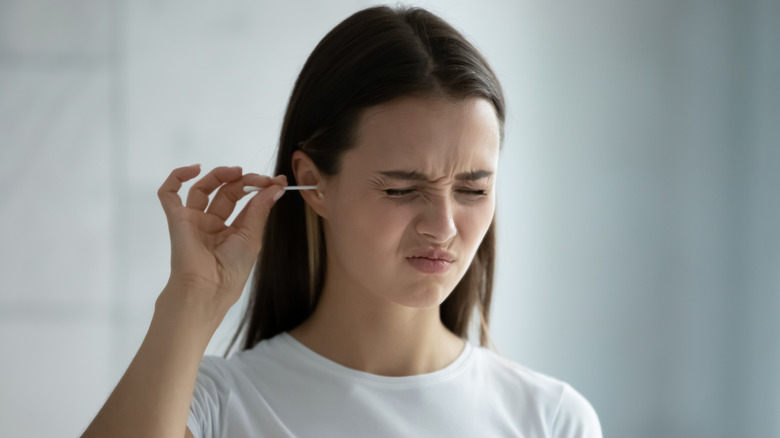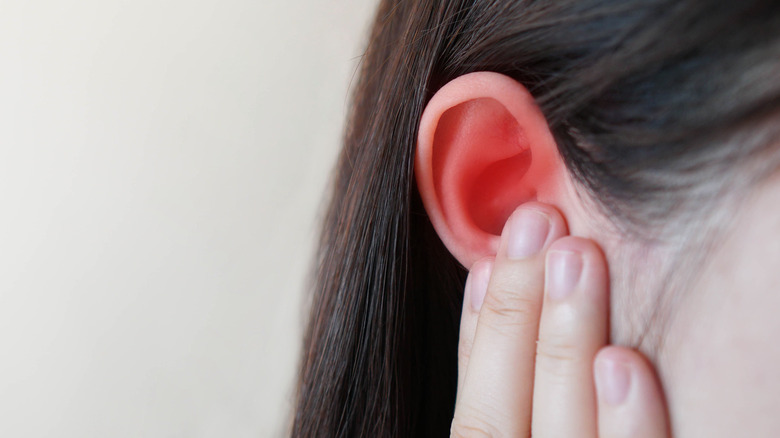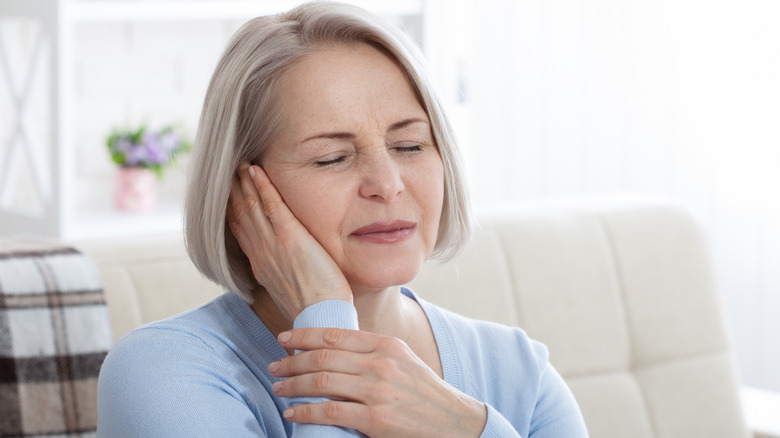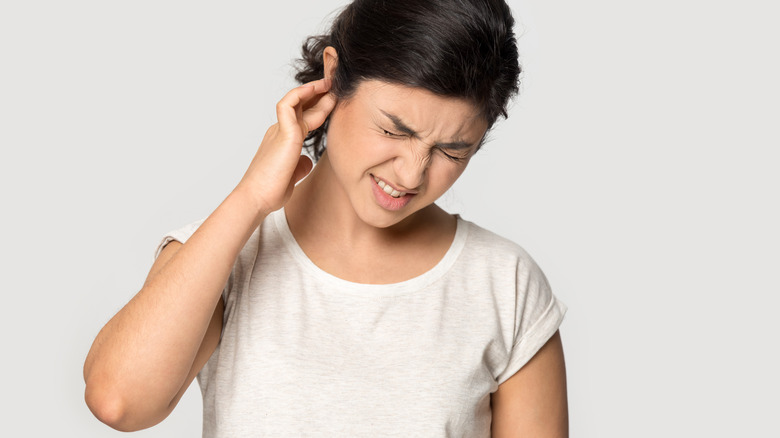
Earaches are common for children and adults, with pain typically affecting one ear more than the other. If you’ve noticed that your left ear hurts, it’s important to determine the cause of the pain to ensure it’s being treated properly. Numerous possibilities exist in terms of what can create this discomfort — anything from a buildup of earwax to swimmer’s ear to an infection can cause your left ear to hurt.
If your ear has been impacted by wax, you’ll be able to see and feel the buildup when carefully examining the affected area. Though most people use a cotton swab to clean their ears regularly, this method is not advisable when the wax has become compacted. Using a cotton swab to clean the earwax in these instances may end up damaging your ear and your hearing as well.
As WebMD states, using a swab pushes the wax farther in the ear, which can lead to an infection. Instead, “treat mildly impacted ears at home with over-the-counter ear drops that soften the wax so it can naturally drain.”
When your left ear hurts and the pain can’t be attributed to a buildup of wax, you’ll need to pinpoint your exact symptoms to determine what’s really going on. Luckily, we can help with that.
Changes in air pressure can cause ear pain

One of the most common causes of ear pain is a direct change in air pressure. This often occurs when you’re flying, as swift changes in altitude affect your ear’s ability to equalize pressure. On rare instances, you may experience a similar effect when you’re in an elevator, particularly if you’re traveling between higher floors. If you’re experiencing discomfort due to a change in air pressure, you’ll feel a popping sensation in your ears, especially when you swallow (per WebMD).
The easiest way to combat this irritation while on a plane is to chew gum during takeoff and while the plane is landing. WebMD also recommends this helpful trick: “Take a deep breath, pinch your nostrils shut, then gently try to blow air out of your nose.” These same principles apply if you notice you’re experiencing ear pain while you’re on an elevator. Be sure to take these precautions to prevent any unnecessary discomfort, and you’ll notice your ears hurting less in these specific circumstances.
Ear infections cause pain and impair your hearing

If your left ear hurts and your hearing has been impaired due to the discomfort, you may have an ear infection. According to Healthline, you can develop an infection in your inner ear, middle ear, or outer ear. “Outer ear infection can be caused by swimming, wearing hearing aids or headphones that damage the skin inside the ear canal, or putting cotton swabs or fingers in the ear canal.”
Inner ear infections are typically caused by scratching and irritation to the ear canal, whereas middle ear infections are the result of a respiratory infection. Anything from a common cold to allergies to a sinus infection may cause middle ear infections, and it’s best to seek the advice of a medical professional when this happens. Your doctor can pinpoint the exact cause of your ear pain and provide you with the antibiotics and decongestants needed to effectively treat the discomfort, per WebMD. You’ll experience an improvement in your hearing once the ear pain has been managed.
Swimmer's ear is a common ear canal infection

Swimmer’s ear is caused by bacteria and can be contracted in various ways, even when you haven’t been swimming in a pool or another body of water. According to WebMD, this condition occurs when water is trapped in the ear. This does typically occur when you’ve been swimming, but you can just as easily develop swimmer’s ear after taking a shower or a bath. If you stick anything inside your ear, including cotton swabs, you run the risk of trapping moisture inside your ear canal. Though this isn’t as common, it is something to be mindful of when you clean your ears every day, especially if you’re doing so right when you get out of the shower.
Symptoms of swimmer’s ear include itching, pain, tenderness, muffled hearing, and fluid draining from your ear. If you’re experiencing any of these symptoms in addition to extensive ear pain, contact your doctor, and arrange for an in-person appointment. Treatment for swimmer’s ear includes antibiotics; ear drops; and, in some instances, steroids, depending on the severity of the case.
Regardless of why your left ear hurts, it’s important to treat the condition properly to avoid extensive damage to your ear and hearing.
Source: Read Full Article